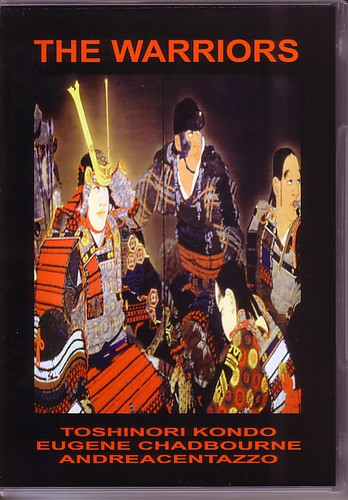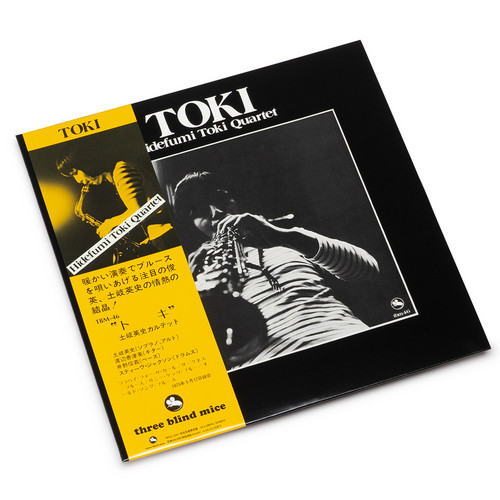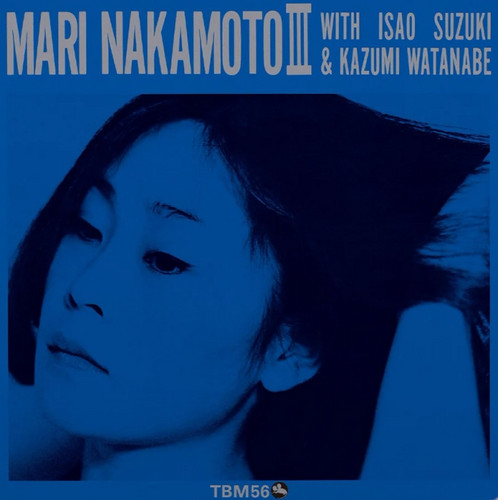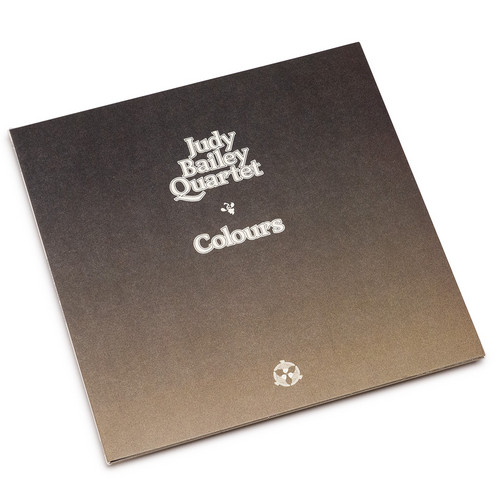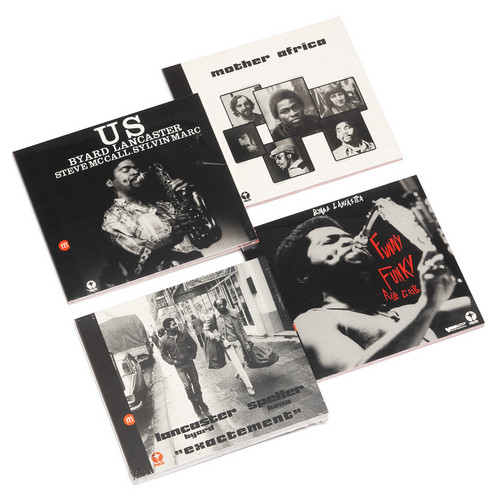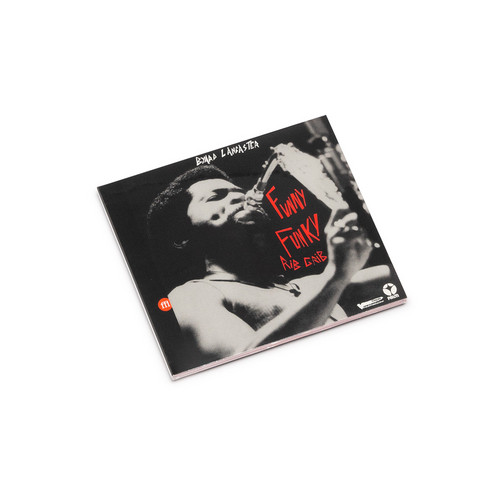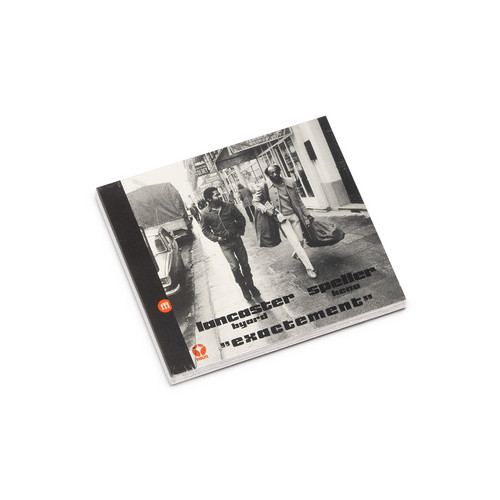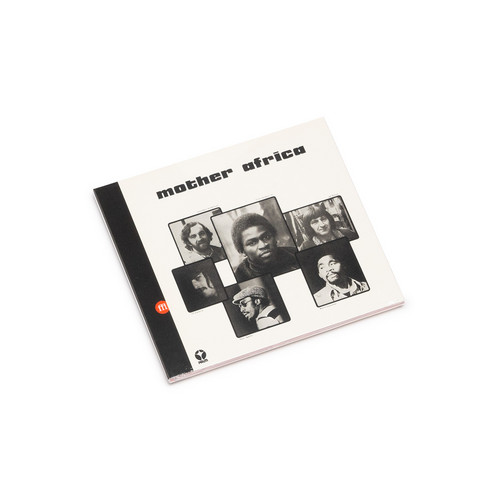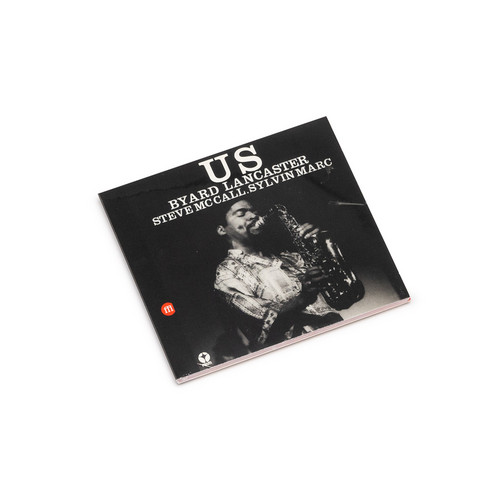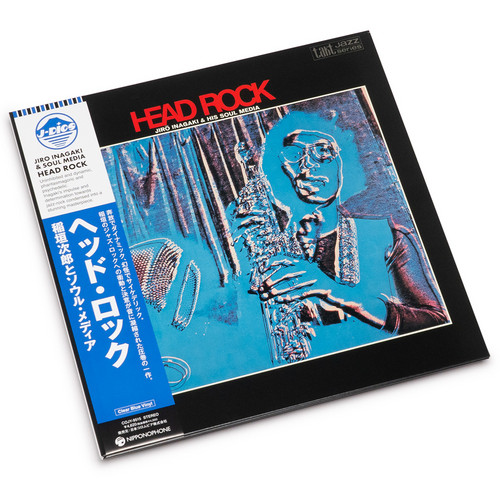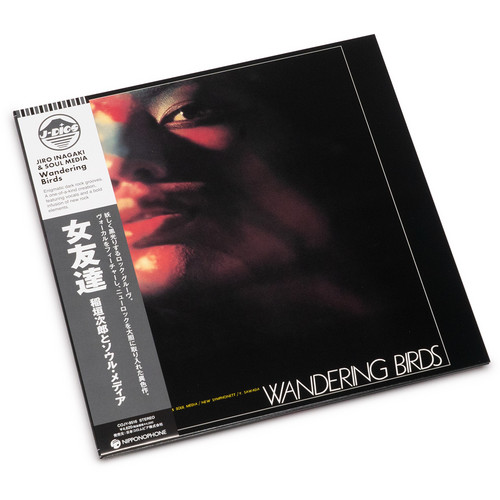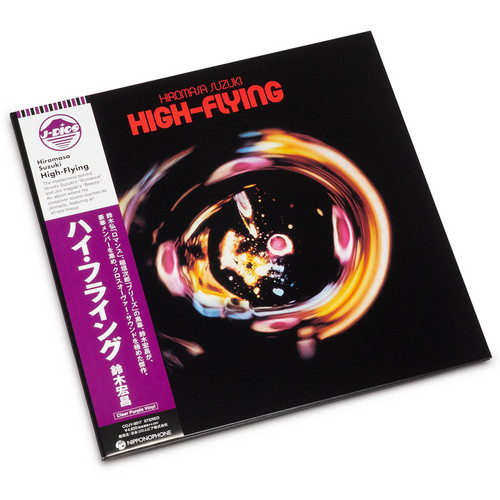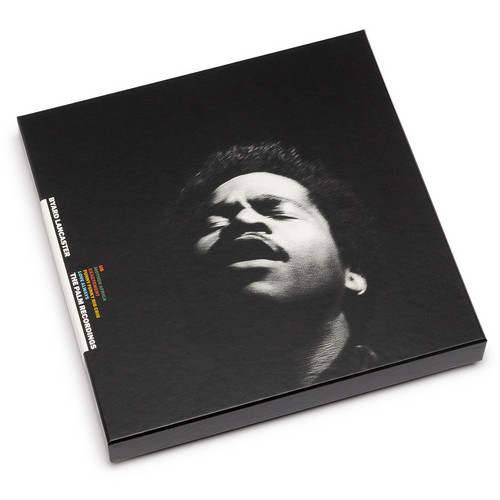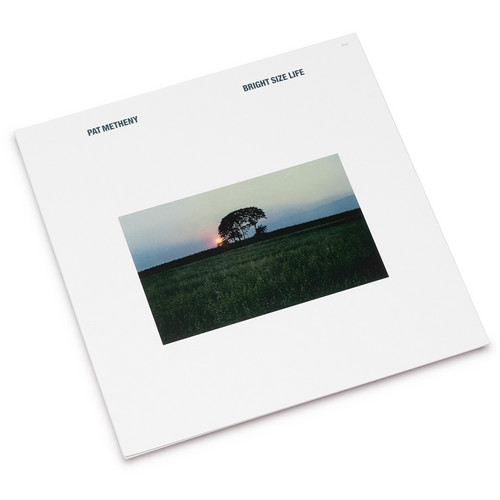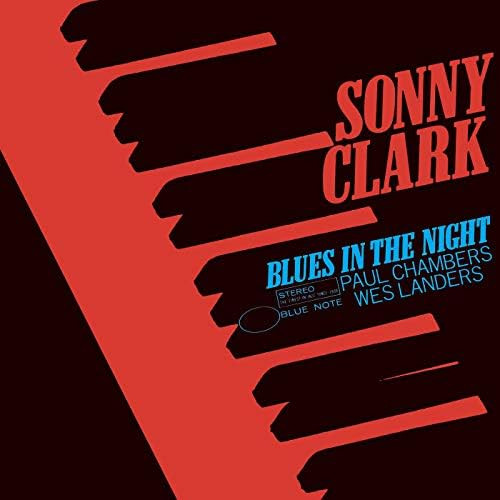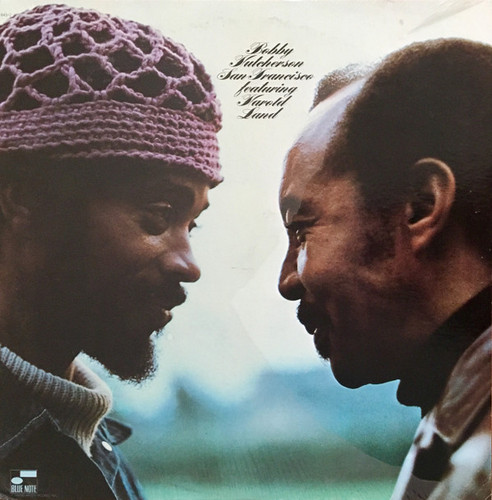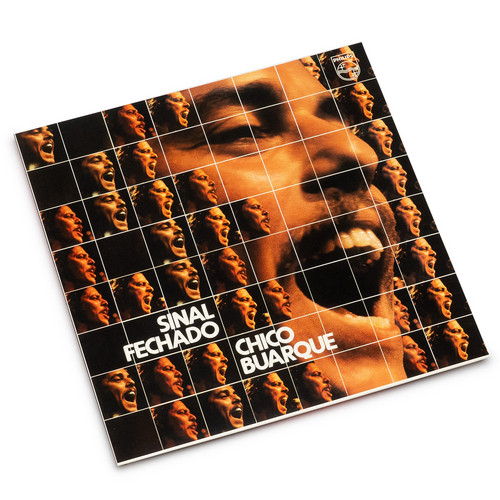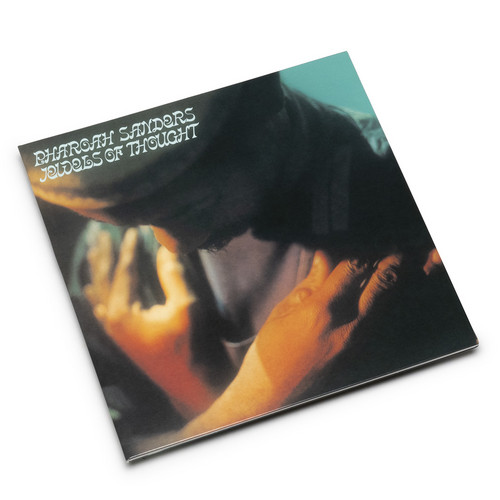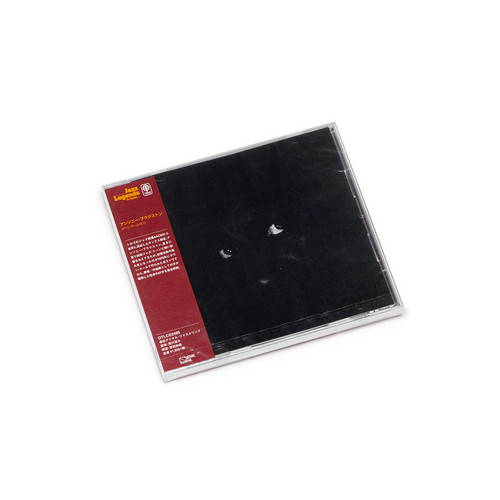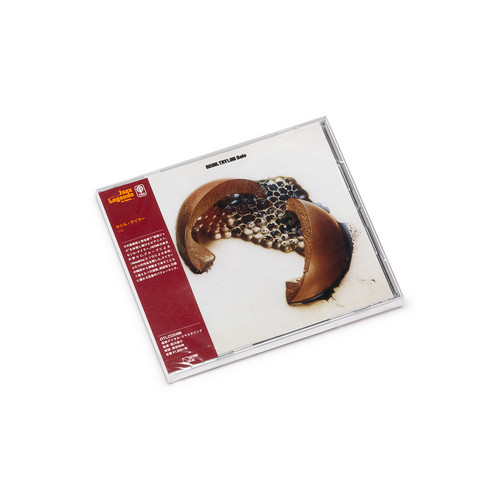Jazz /
The Warriors
*2023 stock* Long awaited, never before published live chronicles of legendary Kondo / Chadbourne / Centazzo 1979 Italian tour. The document of the time, the music, and one of the direction of the improvised art form in late 70s. "We showed up at the train with all the equipment, 50 cases of percussion. The organizer is five hours late to meet. Then we all get searched on highway by the Italian police, looking for terrorists of the Red Brigade…" - Eugene Chadbourne
Toki
Hidefumi Toki's 1975 album Toki offers a deeply personal journey into the realms of jazz, showcasing his expressive prowess on alto and soprano saxophones. Backed by a stellar quartet including Kazumi Watanabe on guitar, Nobuyoshi Ino on bass, and Steve Jackson on drums, Toki creates a stunning sonic landscape filled with gentle, raspy tones. The album's ambiance is laidback and mellow, yet infused with a profound sense of spiritual depth reminiscent of Coltrane's work. Original compositions lik…
Mari Nakamoto III
Mari Nakamoto's third Three Blind Mice (TBM) release showcases her tender vocal style, complemented by the masterful accompaniment of Isao Suzuki on bass and Kazumi Watanabe on guitar.
Colours
Tip! Behind the deceptive veneer of the demure monotone artwork, something unassuming lies within this long-play waiting to be explored. Intrigued by the ironic title, enticed by the elegant text positioned alone on the beautifully tactile matte canvas, the listener will experience musical wonderment at odds with the presentation and discover that the 1976 album Colours is a powerful yet sophisticated set of electric soul-jazz. An inspired recording that bursts with warmth and texture, the pivot…
Byard Lancaster - Us + Mother Africa + Exactement + Funny Funky Rib Crib
Souffle Continu records is thrilled to present Byard Lancaster – Us, Mother Africa, Exactement and Funny Funky Rib Crib. His all 4 legendary albums released on Jef Gilson’s Palm Records in the 1970s. At the beginning of the 1960s, at the Berklee College of Music, Byard Lancaster met some feisty friends: Sonny Sharrock, Dave Burrell and Ted Daniel. It is easy to see why he rapidly became involved in free jazz. Once he was settled in New York, he appeared on Sunny Murray Quintet, recorded under th…
Funny Funky Rib Crib
Souffle Continu records is thrilled to present Byard Lancaster – Funny Funky Rib Crib, one of his 4 legendary albums released on Jef Gilson’s Palm Records in the 1970s. At the beginning of the 1960s, at the Berklee College of Music, Byard Lancaster met some feisty friends: Sonny Sharrock, Dave Burrell and Ted Daniel. It is easy to see why he rapidly became involved in free jazz. Once he was settled in New York, he appeared on Sunny Murray Quintet, recorded under the leadership of the drum crazy …
Exactement
Souffle Continu records is thrilled to present Byard Lancaster – Exactement, one of his 4 legendary albums released on Jef Gilson’s Palm Records in the 1970s. At the beginning of the 1960s, at the Berklee College of Music, Byard Lancaster met some feisty friends: Sonny Sharrock, Dave Burrell and Ted Daniel. It is easy to see why he rapidly became involved in free jazz. Once he was settled in New York, he appeared on Sunny Murray Quintet, recorded under the leadership of the drum crazy colleague …
Mother Africa
Souffle Continu records is thrilled to present Byard Lancaster – Mother Africa, one of his 4 legendary albums released on Jef Gilson’s Palm Records in the 1970s. At the beginning of the 1960s, at the Berklee College of Music, Byard Lancaster met some feisty friends: Sonny Sharrock, Dave Burrell and Ted Daniel. It is easy to see why he rapidly became involved in free jazz. Once he was settled in New York, he appeared on Sunny Murray Quintet, recorded under the leadership of the drum crazy colleag…
Us
Souffle Continu records is thrilled to present Byard Lancaster – Us, one of his 4 legendary albums released on Jef Gilson’s Palm Records in the 1970s. At the beginning of the 1960s, at the Berklee College of Music, Byard Lancaster met some feisty friends: Sonny Sharrock, Dave Burrell and Ted Daniel. It is easy to see why he rapidly became involved in free jazz. Once he was settled in New York, he appeared on Sunny Murray Quintet, recorded under the leadership of the drum crazy colleague of Alber…
Head Rock
Tip! *Japan import with Obi Strip* From the opening tune “The Vamp” to the final “Head Rock”, this album is a dazzling jazz rock showcase with dreadnought songs that are filled with ideas and passion. This is a masterpiece that has an overwhelming presence in the history of jazz in Japan, as an heresy left on the prestigious jazz label Takt.
Wandering Birds
Tip! *Japan import with Obi Strip* This is the first and long-awaited vinyl reissue of this Jiro Inagaki & Soul Media jazz rock masterpiece! With vocals by Sammy and Yasushi Sawada. Backed by Masahiko Sato, Kimio Mizutani, Hiro Yanagida. Essential!
High-Flying
Tip! *Japan import with Obi Strip* Hiromasa Suzuki is a legendary composer and arranger, and a key player who has been active in the Japanese music world, including jazz as well as movies, television and commercials. In the late ‘60s and mid-’70s, he was deeply involved in the works of Terumasa Hino, Akira Ishikawa and Jiro Inagaki in their most radical times. The album “High-Flying,” recorded in 1976, showed his innovativeness, which was always one step ahead of the times. This is an essential …
The Complete Palm Recordings 1973-1974
Last Copies around. Bomb! ** 700 copies only. Definitive 7 vinyl records deluxe package featuring all four original albums restored and remastered, each with 4 page-portfolio and exclusive obi strip + 20-page booklet ** Souffle Continu records is thrilled to present Byard Lancaster – The Complete Palm Recordings 1973-1974, the definitive deluxe package of Philadelphia born jazz wizard Byard Lancaster including his 4 legendary albums released on Jef Gilson’s Palm Records in the 1970s, Us, Mother …
Bright Size Life
New vinyl edtition as part of the "Luminessence" Series, presented as a tip-on gatefold including new photos from the archive. “I personally feel this is a great record and recommend it to everyone. It’s positive and hot and simply excellent.” – Gary Burton
Pat Metheny had debuted at ECM as a member of Gary Burton’s band on the album Ring in 1974, but Bright Size Life, his first studio recording as a leader, was the album that decisively put him on the map as a bright new force, with something…
Blues In The Night
Back in stock ! The piano trio material included in this reissue, constitutes a body of work which was never released in LP format during Sonny Clark's tragically short life. Clark was an underrated master of the hard bop genre who had a very subtle, artful touch. On this date, he exhibits the influence of Ahmad Jamal and Red Garland (a lighter sound) and less of the Bud Powell-inspired, hard-driving bebop lines. The arrangements are simple and concise; the tunes are all well-known standards. So…
San Francisco
San Francisco is an album by jazz vibraphonist Bobby Hutcherson and saxophonist Harold Land, released on the Blue Note label in May 1971. The album features a shift away from the usual hard bop-post-bop style pursued previously by Hutcherson and Land, and shifts towards jazz fusion.
Sinal Fechado
Of the early stars of MPB (Música Popular Brasileira), Chico Buarque was one of the first to become a certifiable pop star. With his warm, nasalinflected croon, elegant phrasing, and considerable skill at lyric writing, Buarque (who is handsome to boot) became extremely popular with women, who loved his understated sensuality. In 1974, Buarque recorded Sinal Fechado, after having his music censored numerous times by the Brazilian military dictatorship during the ‘70s. By the time of this recordi…
Jewels of Thought
180 gram Vinyl Edition. Gatefold Cover. The fourth album as a leader by spiritual jazz saxophone titan Pharoah Sanders, Jewels of Thought was released in 1969. It Consist of two extended tracks, one of which had to be divided into two parts in order to fit onto the LP. Sanders was incrediblt active in 1969, recording lo less than four albums and releasing three. The band on Jewels of Thought includes several major stars, among them Idris Muhammad, Roy Haynes, Richards Davis, Cecil McBee, Leon Th…
Town Hall 1972
Tip! *2024 stock* If Anthony Braxton were to be judged on the basis of his oeuvre alone, he would stand completely apart from any modern composer, bar none. He has an enormous body of work, written for every conceivable permutation and combination of ensemble, from two to over a hundred and also for practically all the modern instruments known to musicians. As a reeds and winds player, he has a staggering technique, but not only this: he dives deep into the soul to extract the most subtle emotio…
Solo
*2024 stock* Cecil Taylor's masterwork is captured on this Japanese CD (reissue of the eponymous album released on LP in 1973) that dates back to his zenith of performance, when he was pushing the envelope of improvisational music to unprecedented heights of intensity and precision. While Taylor's work in the 1960s was impressive, his performance in the 1970s, and this particular track in particular, is absolutely breathtaking. With a style that may appear chaotic upon initial listen, Cecil's f…
